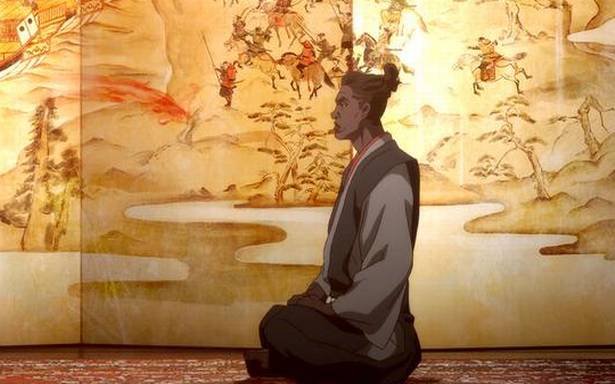Be it Netflix anime series ‘Yasuke,’ or albums by Wu-Tang Clan, the strong connect between the two communities is apparent in pop culture
‘I hear the pain in your voice behind those strained threats. The pain of an outcast forever marked by their skin. No matter how skilled in battle or honourable you proved yourself to be. I’ve felt it too. The dulled-eye masses hatred of anything they don’t understand.’ These lines, from LeSean Thomas’s Netflix anime series Yasuke, are spoken by a female samurai named Natsumaru (voiced by Ming-na Wen in the English version) as advice to the titular protagonist. The reason why Natsumaru feels there’s solidarity between the two of them is that Yasuke (Lakeith Stanfield) is a rarity: a dark-skinned African samurai, the first of his kind. Yasuke has been loosely based on the real-life historical figure of the same name, an African samurai who served daimyo (a Japanese feudal lord) Oda Nobunaga in the 16th century.
Also Read | Get ‘First Day First Show’, our weekly newsletter from the world of cinema, in your inbox. You can subscribe for free here
Released this April, Yasuke infuses several different kinds of genre sensibilities within its samurai origin story — there’s magic, gigantic fighting robots (a nod to fans of the mecha genre of manga/anime), and a whole lot else in its six episodes. It is also the latest example of Afro-Asian connections, both within Hollywood and across pop culture in general. Take the Wu-Tang Clan, for instance, one of the most famous and critically-acclaimed hip-hop groups of all time. Much of their early work, like their 1993 debut album, Enter the Wu-Tang (36 Chambers), used dialogue samples from Hong Kong kung fu films, classics like Enter the Dragon (1973) and The 36th Chamber of Shaolin (1978).
A still from ‘The 36th Chamber of Shaolin’ | Photo Credit: Special Arrangement
The Wu-Tang Clan’s fascination with these movies and their tropes wasn’t a straightforward cinephile’s fandom. It was founding member RZA’s genuine affection for these cultures. RZA, of course, later starred in and directed a movie called The Man With the Iron Fists, which was an elaborate tribute to the Hong Kong kung fu movies he had loved as a young man. In several interviews down the years, RZA has spoken about the solidarity between Asian-American and African-American communities, how they continually learn from each other. In Jim Jarmusch’s 1999 film Ghost Dog: Way of the Samurai, we meet the titular Ghost Dog (Forest Whitaker, in a poignant performance), a black man who has decided to live his life according to the tenets of the hagakure, the samurai code of conduct.
A much older and certainly more famous example is, of course, the smash hit 1974 song ‘Kung Fu Fighting’, written by British-Indian musician Biddu, and performed by Jamaican singer Carl Douglas. The song itself sought to cash in what was then a newly-minted American obsession: Bruce Lee and the entire Hong Kong martial arts film assembly line. Lee had died only the previous year and, if anything, his sudden demise had only increased the intensity of this trend. Many of Lee’s films, like Enter the Dragon, were in fact America/Hong Kong co-productions.
A still from ‘Ghost Dog: Way of the Samurai’ | Photo Credit: Special Arrangement
The refrain of this song lends its name to historian Vijay Prashad’s 2001 book Everybody was Kung Fu Fighting, a great resource for anybody who wants to know more about Afro-Asian connections in America and everywhere else, really. Prashad’s objective is to re-contextualise ‘default’ histories of Asia and Africa in order to understand how minority communities in America interact within an unequal, uber-capitalist, racialised society. According to Prashad, ‘multicultural’ implies a kind of static, flat co-existence between minority communities which does not account for exchanges like ‘Kung Fu Fighting’ or Yasuke. Prashad also warns against using words/phrases like ‘cultural influence’ because that phrase implies directionality in the exchange, like an older sibling teaching the younger one.
Yasuke, over and above being a whole lot of fun, is also a reminder of these surprising connections across space and time — hopefully, Netflix will invest in a second season soon, and also greenlight projects with similar ambitions.
Source: Read Full Article


